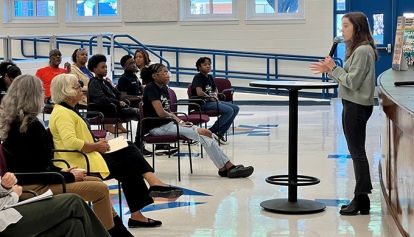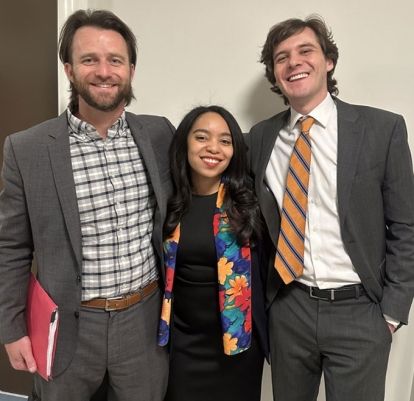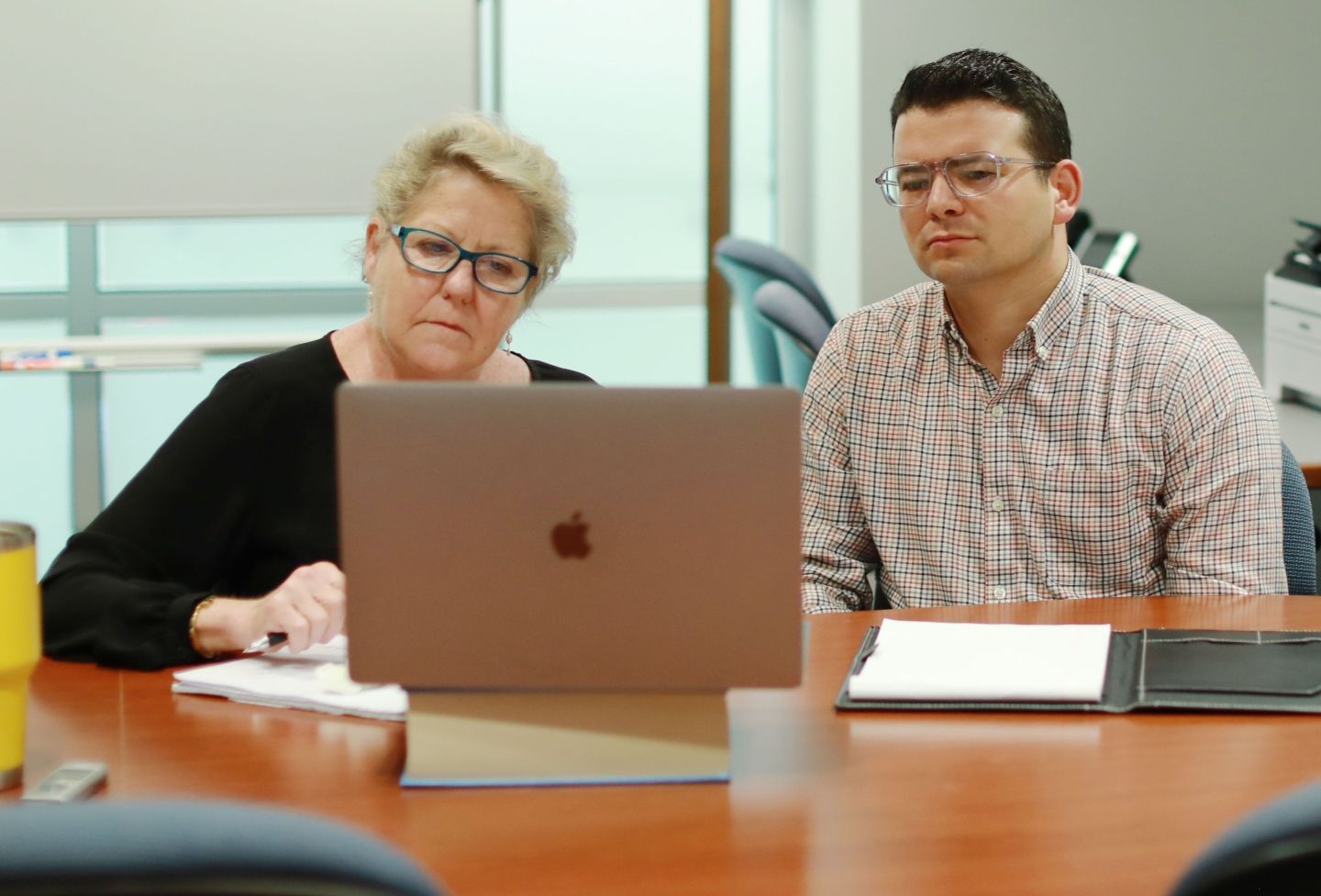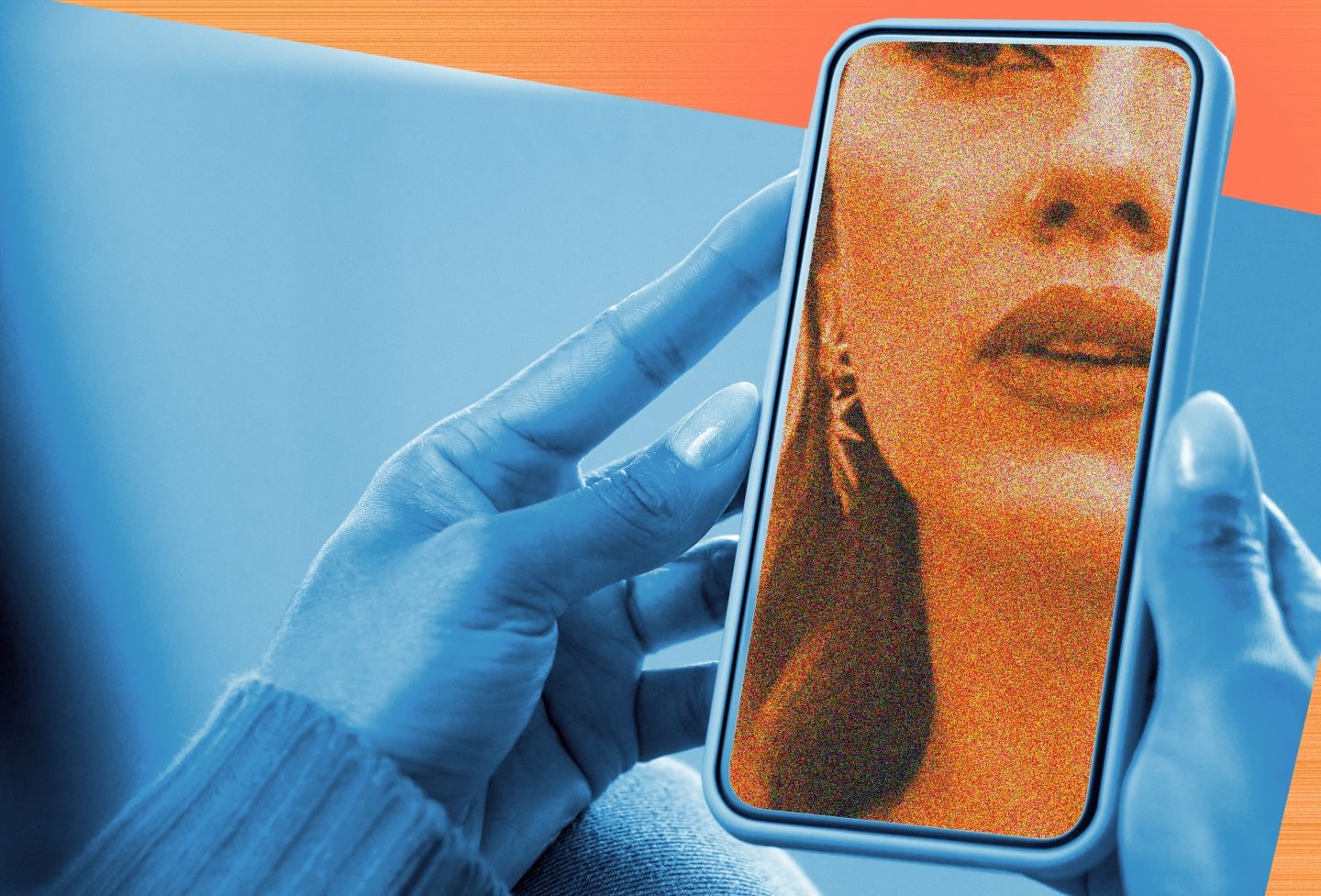During the past year, students in clinics at the University of Virginia School of Law won asylum for a man fleeing persecution, helped pass reforms for exonerees’ compensation and appealed clients’ cases to the U.S. Supreme Court, among other accomplishments.
Virginia’s 24 legal clinics, many of which involve working directly with clients, offer students experience in handling real-world problems. Seven of the clinics are run in partnership with the Charlottesville-based Legal Aid Justice Center.
The following is a sampling of some of this year’s successes and advocacy on behalf of clients:
Students in the Civil Rights Clinic represented several incarcerated people in front of the Virginia parole board, worked on Eighth Amendment litigation regarding prison access to medical care and addressed numerous other individual and policy civil rights matters, including developing a possible class-action lawsuit.
Six students in the Decarceration and Community Reentry Clinic traveled to Louisiana with clinic director Professor Kelly Orians and Professor Thomas Frampton to visit seven clients in the state penitentiary at Angola. They also spent a day at a prison rodeo with former clients who are now free.
The clinic also partnered with the Civil Rights Clinic to hold an expungement clinic, removing over 100 dismissed, acquitted or “nolle prossed” charges from 15 residents’ records. Nolle prossed charges relate to cases prosecutors have decided not to pursue, though they retain the right to bring charges until the statute of limitations has passed.
Students in the Economic and Consumer Justice Clinic forced nonsuits in several cases brought by debt buyers; helped quash a garnishment of wages spurred by a 12-year-old judgment for which the original court file had been destroyed; and conducted complex research in several areas, including the Federal Fair Debt Collection Practices Act and debt settlement scams.

The Environmental Law and Community Engagement Clinic’s work was featured in the documentary “Pine Grove: More Than a School,” which premiered in April. The clinic has been working with the AMMD Pine Grove Project to protect a historic Black schoolhouse in Cumberland County, Virginia, which is threatened by a proposed landfill on an adjacent site. The AMMD Pine Grove Project screened the movie at the Robert R. Moton Museum in Farmville in commemoration of Booker T. Washington’s birthday. Meanwhile, permitting processes for the landfill remain ongoing, with clinic students continuing to advocate for the school in outreach to the Virginia Department of Environmental Quality and in meetings with the landfill developer.
The First Amendment Clinic successfully supported Business Insider’s efforts to investigate and report on Virginia’s use of canines to physically restrain incarcerated people. Jack Jiranek ’24 and Jack Parker ’25 helped prepare a Virginia Freedom of Information Act petition to compel the release of records relating to this practice, including bite reports and surveillance footage documenting canine use of force. After the reporting, new limitations on canine usage became law.
The Health and Disability Law Clinic spent the year preparing federal Medicaid and Americans with Disabilities Act litigation on behalf of an individual client and potential class of clients, and worked on 18 additional cases spanning 21 substantive areas of health and disability law.
The Housing Litigation Clinic handled over 40 housing matters over the course of the year, mostly focused on eviction. The clinic represented a public housing client in a grievance meeting with housing officials, a Section 8 voucher-holder in a voucher termination hearing resulting in the client keeping her rental assistance and a client in a move-out damages dispute.
The Immigration Law Clinic prepared and litigated two full asylum cases: In the fall, students secured asylum for a Senegalese man fleeing persecution because of his sexual identity, and in the spring, students argued asylum for a persecuted mother of five from Honduras.

The Innocence Project Clinic worked with state Del. Rip Sullivan ’87 on a bill to reform compensation laws for wrongful incarcerations. The legislation, signed into law by Gov. Glenn Youngkin in April, changed annuity payments into lump sums and allowed estates to receive funds if the exoneree is deceased, among other changes. The clinic also advocated for exoneree David Kingrea, who became the first Virginian to be awarded compensation for the time he wrongfully spent on the sex offender registry.
The Supreme Court Litigation Clinic filed four cert petitions at the high court, including in Spencer v. County of Harrison, Texas, concerning the constitutionality of indiscriminately shackling a 10-year-old client. The clinic argues that the Fifth U.S. Circuit Court of Appeals’ refusal to recognize a due process right under these circumstances departed from the decision of multiple state courts.
Workplace Rights Clinic students John Henry Vansant ’25 and Hanna Ross ’24 worked with lawmakers in the General Assembly on legislation that would have ended exemptions from Virginia’s minimum wage requirements for farmworkers and temporary foreign workers.
The Youth Advocacy Clinic tackled more than 10 education cases involving school discipline and individualized education programs, with students participating in two school board hearings, a circuit court appeal, two administrative complaints, one discrimination complaint and several IEP meetings.
More Clinic News
- 5.23.24 Grad Receives Clinic Award
- 5.22.24 Professor, Clinic Leader Wins University’s Excellence in Public Service Award
- 5.14.24 Students Teach Business Law Classes to Incarcerated
- 5.2.24 Clinic Helps Pass Foster Care Reform in Virginia
- 4.30.24 Clinic Students Travel to Argentina, Geneva To Observe Evolution of Justice
- 3.29.24 Appellate Litigation Clinic Students Win at the Sixth Circuit
- 3.11.24 New UVA Law Program Prepares Students for Appellate and Supreme Court Practice
- 1.4.24 Appellate Clinic Students Succeed at 9th Circuit
- 11.21.23 Students Report on Transformative UN Trip
- 11.3.23 Clinic, Prosecutor Partner To Investigate Cases Linked to Disgraced Detective
Founded in 1819, the University of Virginia School of Law is the second-oldest continuously operating law school in the nation. Consistently ranked among the top law schools, Virginia is a world-renowned training ground for distinguished lawyers and public servants, instilling in them a commitment to leadership, integrity and community service.


